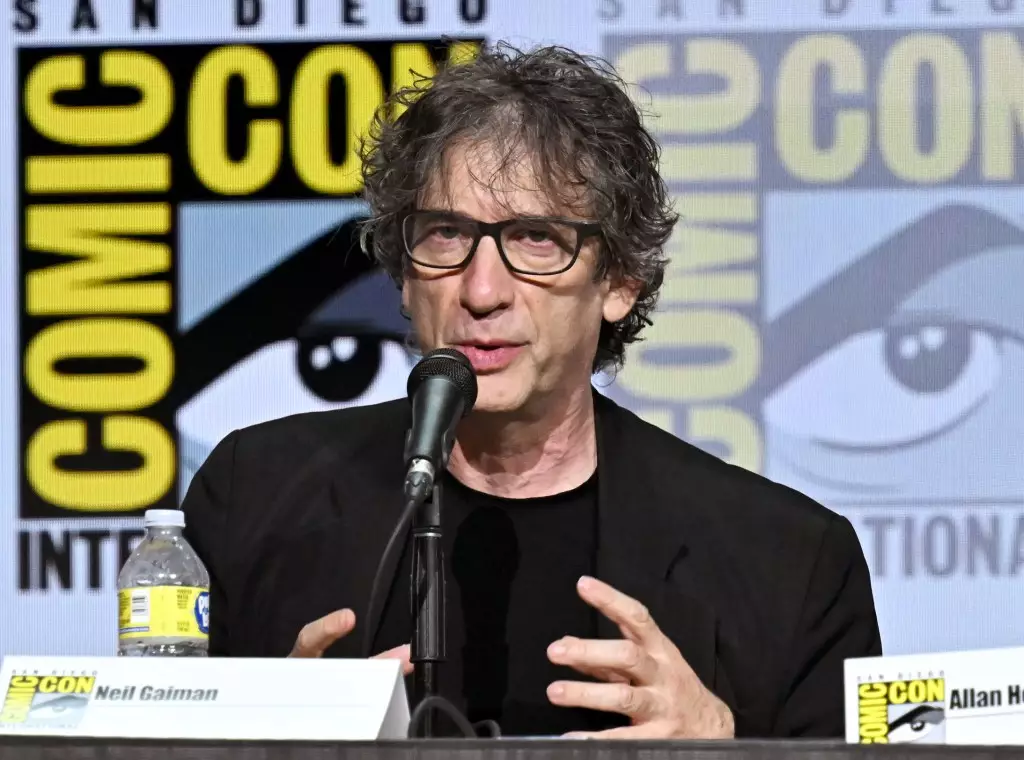In a startling turn of events for the literary and entertainment community, acclaimed author Neil Gaiman has found himself at the center of serious allegations that have impacted his ongoing projects and tarnished his public persona. Dark Horse Comics has recently announced the cancellation of Gaiman’s highly anticipated comic series, “Anansi Boys,” following accusations of sexual misconduct made against him by multiple women. The nature and consequences of these allegations reflect a broader reckoning within various creative industries regarding accountability and respect.
On a recent Friday night, Dark Horse Comics communicated their decision via social media, stating, “Dark Horse takes seriously the allegations against Neil Gaiman and we are no longer publishing his works. Confirming that the ‘Anansi Boys’ comic series and collected volume have been canceled.” This decisive action emphasizes the seriousness with which publishers are responding to allegations. The comic series had generated significant interest due to Gaiman’s status as a best-selling author with a penchant for weaving intricate narratives filled with myth and fantasy. Now, this project has become collateral damage in a much bigger conversation about maintaining safe and respectful spaces in creative fields.
The allegations surfaced through a thorough examination of personal accounts highlighted by Tortoise Media, revealing testimonies from four women—two coming forward in July and another pair by the end of that month. These stories paint a troubling picture of Gaiman’s past interactions, thereby igniting discussions on the conduct of influential figures within the literary sphere. The implication of such accusations not only puts Gaiman’s personal character into question but also reflects systemic issues within industries that often allow power imbalances to persist unchallenged.
In response to the allegations, Gaiman took to his blog, making it clear that he vehemently denies any non-consensual sexual activity. He describes his reflections on the accounts as a mixture of recognition and confusion, stating, “As I read through this latest collection of accounts, there are moments I half-recognize and moments I don’t.” Such statements indicate an introspective approach, but they also raise questions about the reliability of memory and perception in recalling past events. Gaiman’s claims of emotional unavailability, coupled with an unwillingness to admit to behaviors he did not commit, complicate the narrative. While he expresses remorse for any emotional harm that may have been inflicted, the depth of his acknowledgment remains unclear.
The fallout from these allegations has not been limited to the cancellation of “Anansi Boys.” Significant shifts have occurred in Gaiman’s involvement with other noteworthy projects as well. For instance, the highly praised adaptation of “Good Omens,” co-created with Terry Pratchett, is set to conclude with a single 90-minute episode instead of the previously planned entire season. This decision reflects the industry’s caution in handling Gaiman’s present status and has resulted in him stepping back from creative roles that could potentially detract from his original vision for the series.
Additionally, even Disney has not been immune to the repercussions of the allegations, as they chose to put a planned adaptation of Gaiman’s “The Graveyard Book” on indefinite hold. These decisions underscore a marked pivot in how companies engage with creators embroiled in controversy, demonstrating a trend toward prioritizing moral and ethical standards in content production.
Neil Gaiman’s situation encapsulates a broader discourse on accountability and respect within creative industries. The rapid response from publishers and production companies reveals a significant shift in the landscape where artists are not only judged on the merit of their work but also on their personal conduct. The impact of these allegations goes beyond Gaiman himself; they contribute to an ongoing cultural reckoning that aspires to create safer working environments for all individuals involved in creative enterprises.
As the dust settles on this unfolding narrative, one must reflect on the complexities of human behavior, memory, and the consequences that arise from public allegations. Neil Gaiman, a figure once celebrated for his storytelling prowess, now faces the daunting task of navigating his professional life amidst serious claims that challenge his credibility. Whether resilience or reinvention awaits Gaiman in the future remains to be seen, but it highlights the profound changes and challenges that everyone in the industry must confront as they re-evaluate their own narratives and responsibilities.


Leave a Reply